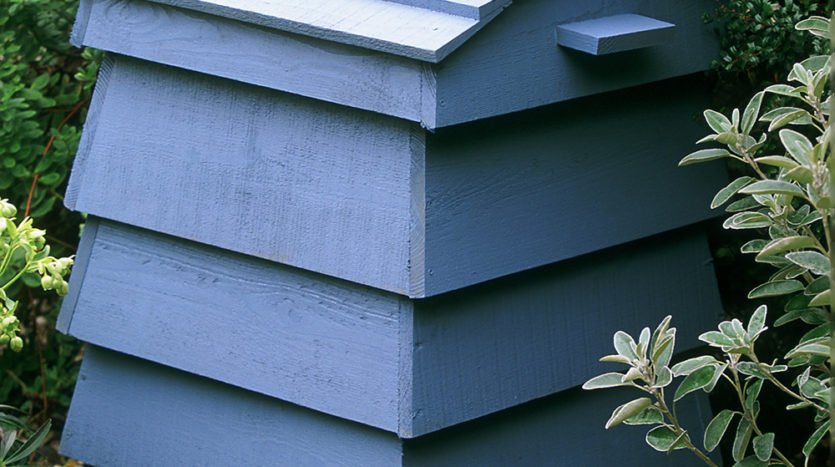How to make compost – feed your garden for free
Help your garden and the environment by creating your own compost heap. We explain how to make compost that will improve the soil in your borders, veggie plots and allotment.
Composting is a cheap way to turn household waste into nutrient-rich compost for your garden. It’s also a great way of recycling – cutting down on waste that would otherwise end up in landfill.
You could use the finished product too enrich a vegetable plot, plant up patio containers or feed your grass. And after an initial outlay for your bin and caddy, it won’t cost you a (runner) bean!
More outdoor money saving: Brilliant budget garden ideas that will boost your outdoor space without breaking the bank!
With help from our green-fingered guru, Craig Roman of Dobbies Garden Centres, we explain how to make compost.

Image credit: Tim Young
How to make compost – the kit you’ll need
- Compost bin
- Garden fork
- Kitchen compost caddy
- Biodegradeable caddy liners
1. Buy a compost bin
Compost bins start at around £20. Plastic bins usually have a door at the front so mature compost can be removed without disturbing the whole heap, and a darker colour finish will help retain moisture. Most garden centres stock these and they’ll typically come in two sizes – 220 litres and 330 litres.
Wooden bins are more suited to large plots and decorative bins are ideal if you have a small garden and your compost heap will be on permanent show.
Small garden? Read: Small garden ideas to make the most of a tiny space
Whichever option you go for, try to fit in as big a composter as your space will allow, as it will fill up faster than you think!
2. How to make a compost bin
You could always make your own container from old planks of wood or cheap pallets – just make sure it’s rainproof, lets air in and allows drainage.
The best homemade bin will have solid sides and an open base. Start with four corner posts, then use pallets, planks or tightly stretched chicken wire to cover the sides. You could pop another pallet or a piece of carpet over the top to retain moisture.
3. Put your bin in position
Your site should be level, well-drained and ideally on bare soil to give easy access to worms, who helpfully break down the contents.
If that’s not possible, place your composter on a concrete or other hard surface. And whatever you do, don’t put it on top of decking, as the wood will rot.
Make sure your compost heap is sheltered – you need the compost to retain warmth for the contents to rot down well. Don’t position it in full sun, as this will dry out the compost.
4. Build up your heap
 Collect kitchen scraps in a caddy lined with a biodegradable bag you can pop into the composter whole. Shred or cut larger pieces of waste before you add them, especially woody stems, to help them break down.
Collect kitchen scraps in a caddy lined with a biodegradable bag you can pop into the composter whole. Shred or cut larger pieces of waste before you add them, especially woody stems, to help them break down.
Prunings and grass cuttings are good starting point. Like veg peelings, fruit scraps, coffee grounds and teabags, these are described as ‘greens’, which rot quickly and provide nitrogen and moisture. You’ll also need ‘browns’, such as crushed egg shells (great for deterring slugs and snails), paper and card, and straw; these provide fibre and carbon and, importantly, allow air pockets to form.

Surprisingly, you can also add natural materials like cotton and woollen fabric, so long as they are torn into small pieces (2.5-5cm) so that they will break down quickly.
You’ll need to keep your ‘greens’ and ‘browns’ balanced. The Royal Horticultural Society suggests aiming for 25–50% green materials. If your compost is too wet you need more ‘browns’, and vice versa, to stop the compost becoming too dry or too soggy.
5. But don’t bung everything on it

Cooked food scraps, meat and fish will attract rats, so don’t put them in the compost.
Never add pet waste, ashes, stones or non-biodegradeable materials, such as plastics. Also, don’t add diseased plants, as the disease will spread in the compost as you scatter it.
6. Tend to the heap regularly
Use a garden fork, shovel or special aerator tool to turn your compost once a month. This helps to mix up the matter and add air. You might need to pour on a drop of water in very hot weather.
7. Be patient!

Love pottering? Read: Jobs to do in the garden in August
Compost takes between six months and two years to reach maturity. You’ll know that it’s ready once it’s dark and crumbly, with a strong earthy smell.
The post How to make compost – feed your garden for free appeared first on Ideal Home.


test